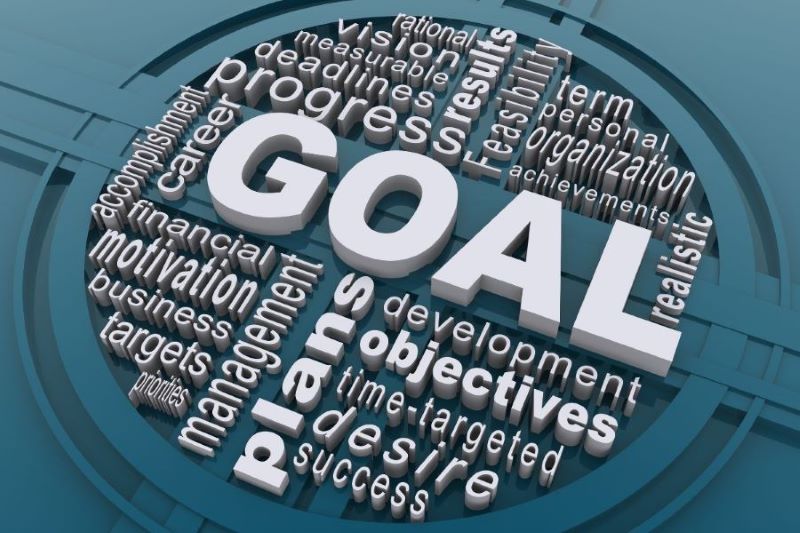Organizing Your Finances: Simple Steps That Work
Organizing your finances is more than having a budget. It’s having financial goals, a plan, and understanding where the money you earn goes every month. You need to organize your finances if you’re ready to get out of the cycle of living paycheck to paycheck and maxing out your credit cards. These steps will help you get started.
Disclosure: This post may contain affiliate links, which means we may receive a commission if you click a link and purchase something we have recommended. This commission comes at no additional cost to you but will help us keep this site up and running and ad-free! Thank you for all the support. You can read our full privacy policy here.
Set Goals

There’s never a bad time to set your financial goals. Many online tools can help you with this. As you think about your financial goals, consider short-term, medium-term, and long-term goals you’d like to accomplish.
A short-term goal is something you’d like to achieve in the next five years, such as paying off a car or credit card debt.
Medium-term goals are those you’d like to accomplish in the next five to ten years, such as buying a house or starting a business.
Long-term goals are more than ten years away and could include going to college or retirement.
For each goal, include a dollar amount you think you’ll need and a target date.
✨Give your finances the refresh they deserve this season➡️ Clean Up Your Finances This Spring
Create a Budget
A budget is how you’ll reach those goals you just set and is based on your existing income and expenses. It should be adjusted frequently, even as often as each pay period, if your income or expenses vary. There are different ways to do this.
Zero-Based Budget
This is an excellent option if you’re prone to overspending and splurging. With this method, you allocate every dollar of your paycheck to a specific category until there’s nothing left. Be sure to allocate some to build your emergency fund.
70-20-10 Budget
As the name suggests, with this method, you split your take-home pay into three categories. Seventy (70%) percent goes to monthly bills and expenses, 20% to savings, and 10% to charity or paying down debt.
There are other methods, such as the 50/20/30 budgeting method, so find one that works for you and your lifestyle.

Track Spending
Now that you have a budget to help you reach your financial goals, you need to track your spending. You can do this in Excel using one of their free templates. Many free and paid apps can make this easier. If spreadsheets are your way of organizing data, Tiller is for you. Some link to your bank account and import transactions, making the process easier.
If your bank or credit union offers this (most do), you may also want to turn on alerts to know when specific actions have happened in your account. This can help keep you accountable, particularly if you’re prone to splurging, or alert you to fraud within your accounts. Below are a few alerts your bank may offer:
- Low balance alert
- Large purchase alert
- Large withdrawal alert
- Direct deposit alert
- International purchase alert
Know Your Due Dates
A key part of organizing your finances is knowing your due dates. If you make late payments, you’ll likely incur a late fee, which doesn’t help with staying on track for your goals. Plus, 35% of your credit score is based on your payment history. Paying on time matters!
You can use calendar reminders or a budgeting app to keep track of due dates and payment amounts to ensure you’re never late again. In addition, most creditors provide online bill payment reminders, which can be customized to your schedule. Finally, if you find you are still late on certain payments, check with your servicer about changing your payment due date.
👉🏻 Want our honest review plus a free budgeting template? Get both here ⇨ Simplifi by Quicken: A DMM’s Review (Plus Free Template)
Automate Your Payments

Most service providers and banks have the option to set up autopay. Depending on the dollar amount and how it fits into your overall budget, this can be a great way to ensure you always pay on time. For larger payments, such as a mortgage or rent, you might need a little more control to avoid overdraft fees. Be sure to set up those reminders so you pay it on time based on your lease and don’t incur penalties. As a bonus, some companies offer discounts for setting up autopay on your account- It never hurts to ask if there’s a discount.
Separate Your Money
Another great way to organize your finances is to separate your money. Have the money you use for bills separate from savings and separate from donations or other funds. There are different ways to do this, so pick the one that makes the most sense for you.
Cash Envelopes
Since you’ve set your budget, you should have a pretty good idea of how much cash you have left each month after your bills are paid. That amount goes into an envelope system for you to spend on variable and discretionary expenses such as groceries or dining out. It’s a great way to reduce splurging and stick to your financial plan. Of course, this plan isn’t for everyone, but if it helps you save and manage your money, we call that a win.
➡️Turn your cash budgeting into an organized Cash Envelope System with this complete budget set.
Different Bank Accounts
Another way to keep your funds separate and still accessible is to use different bank accounts. For example, have one for bills, one for savings, and one for miscellaneous spending – or any others you’d like. You can set up as many accounts as you think you need.
If your take-home pay is the same each pay period, you can automate moving funds, so it’s always exactly where you need it to be. This helps ensure you don’t overspend or incur overdraft fees.
Insurance and Estate Planning
Don’t forget about insurance and estate planning as you organize your finances. They are important parts of any financial plan.
While insurance is essential, you don’t want to pay for coverage you don’t need. Depending on your age, lifestyle, and coverage given by your employer, you will want to consider health insurance, disability insurance, and life insurance. In addition, auto and home/renters insurance may be required by law, depending on where you live.
No matter your age, it’s never a bad time to start estate planning. Be sure to keep your will and other beneficiaries noted in retirement and insurance plans up-to-date. Estate planning can be complicated, so speak with a financial planner and estate attorney to help you get started.
Organizing your finances now helps ensure long-term financial success. So, which of these steps will you do today?
👉🏻 Be the First to Know
Get our newsletter filled with practical tips on personal finance, organizing, and productivity. Plus, reviews of our favorite podcast episodes, resources, and books. ✨ Sign Up for Our Newsletter ✨ for your gateway to a more organized and financially savvy lifestyle.




